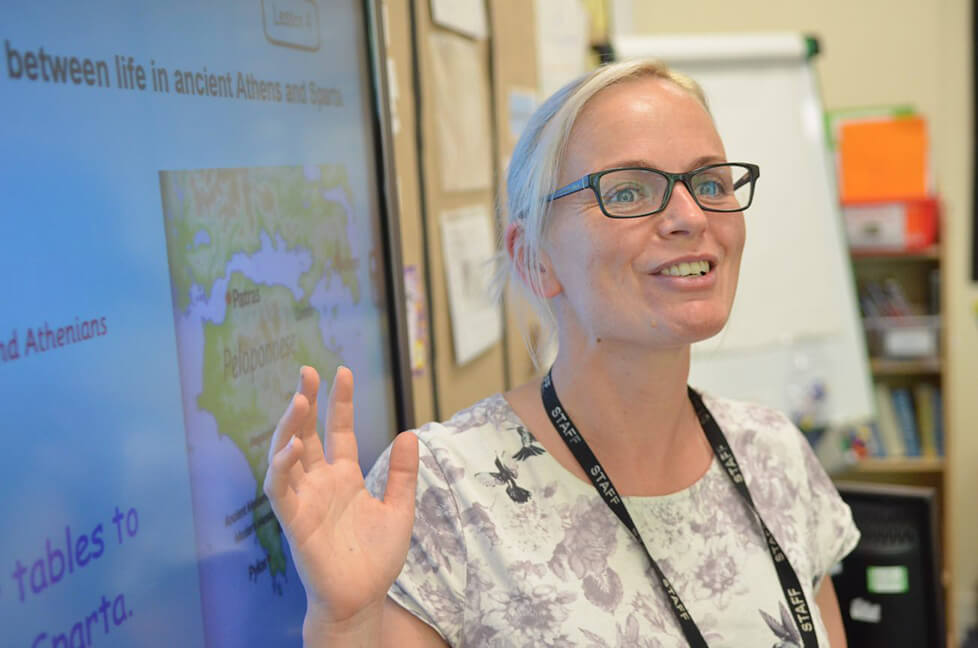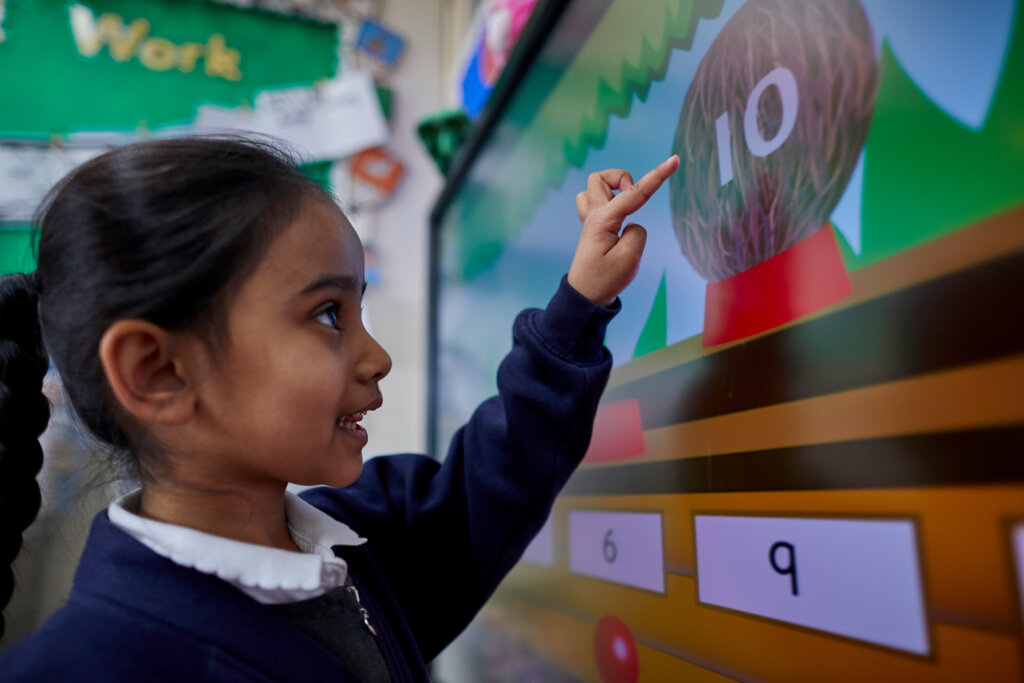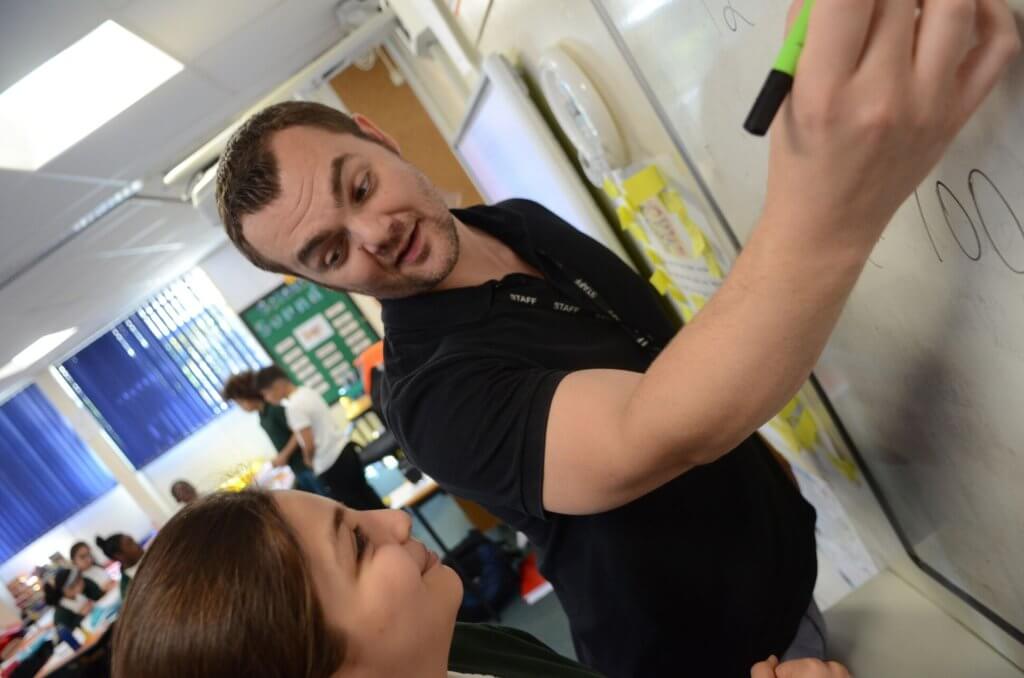One Education is proud to join schools and trusts as we come together to celebrate International Women’s Day 2023. This year, the theme is #EmbracingEquity, an opportunity to reflect on the challenges that women and girls face in education and the workplace, and the steps we can take to create a more inclusive world.
What is equity?
Equality and equity are often used interchangeably, but they mean different things.
Equality recognises that everyone has equal value; as such, we all receive the same rights, the same treatment, and the same access to opportunities. In an ideal world, this would mean everyone had an equal chance of success. But in reality, we know that some people face more barriers than others on the journey to happiness, health and prosperity.
Equity seeks to remove these barriers and create a level playing field. By responding to the particular challenges of individuals and communities, an equitable approach ensures that everyone has the support they need to reach an equal outcome.
In other words, equality is the end goal – equity is how we get there.
Barriers to gender equality
Despite the progress we have made in education and the workplace, gender inequalities still persist. For example, surveys show that girls are significantly less likely to study subjects relating to science, technology, engineering and mathematics (STEM). This is despite the fact that the majority of girls believe STEM subjects are more likely to result in higher-paying jobs. We know this isn’t down to ability – in fact, girls who do choose to study STEM at A Level often achieve higher than boys. The question, then, is why?
According to psychologists, this phenomenon is explained by social belongingness and self-efficacy. In summary, girls are more likely to avoid STEM subjects because they feel they don’t belong in a male-dominated field. At the same time, girls also doubt their ability to do well in these subjects – even in countries where they consistently outperform their male peers. Researchers believe this is due to the prevalence of gender stereotypes.
Career-related learning: the importance of starting early
In the past, career-related learning has often been concentrated in the secondary phase. Understandably, practitioners are reluctant to encourage children to make premature decisions about their future, or force them to grow up too fast.
However, evidence shows that children start to form ideas about their future early on in life. These ideas are often shaped by biases and stereotypes, such as “science is for boys” and “art is for girls.” As a result, pupils begin to narrow their academic and occupational interests before they have the opportunity to really explore and understand what they are capable of. By the age of nine, many children have already abandoned their biggest ambitions.
That’s why, earlier this year, the government launched a new careers programme for primary school children, raising awareness about the world of work and linking learning to future skills, jobs and careers. With £2.6 million in funding, the scheme has been rolled out across 55 Education Investment Areas, targeting 2,250 schools and 600,000 pupils.
By opening children’s eyes to the future of job possibilities, educators can play a key role in championing equity and social mobility. This International Women’s Day, we consider how we can challenge gender stereotypes through career-related learning, giving children the inspiration and support to pursue their dreams.
Taking steps towards an equitable future
In primary school, career-related learning is not about making any decisions, but introducing children to the full range of options and opportunities that lie ahead of them. Consider the following ways you can inspire children and explore new exciting pathways:
- Connect with role models
Welcome volunteers into school where they can deliver career talks, sharing advice and inspiration. If you can, try to invite guests that link with curriculum topics to help contextualise learning. For example, when pupils are building structures in Design and Technology, you could invite an engineer to talk about their role and the skills they learned in school. This can help bring subjects to life and inspire a deeper love of learning, whilst proving what is possible for boys and girls alike.
- Career carousels
Organise a career carousel in the school hall, inviting employers and further education providers to set up stalls and share their expertise. This is a great opportunity for pupils to ask questions and find out more about the career paths they can take, reversing any misconceptions they might have about certain fields. Participants can bring props and uniforms to encourage children to really get immersed in the role, giving them something new to aspire to.
- Workplace visits and workshops
Allow children to experience the world of work first-hand by visiting the workplace and taking part in practical workshops. This will help children gain a better understanding of potential careers, their relation to certain subjects, and the day-to-day tasks involved. Plus, by touring the working environment and seeing employees in action, children will discover the modern workplace is often more diverse than it initially seems. Whether it is a law firm, a film studio, or a factory floor, show pupils they are welcome and motivate them to dream big!
We hope this blog offers some inspiration to help you embrace equity in school, both on International Women’s Day and beyond!
For more advice on school development and curriculum support, please get in touch to find out how our consultants can help.















